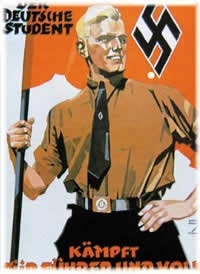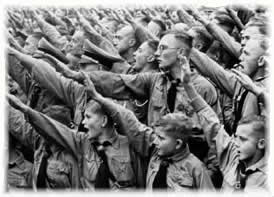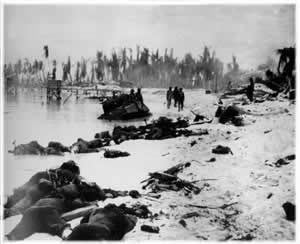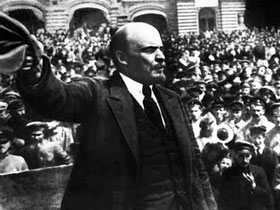 Nationalism as an idea spread throughout Europe in the 18th century. Prior to that, people lived under the power of many feudal lords. Then, they came together under a single nation-state governed by a central administration. European countries such as France and England were among the first to espouse the notion of nationalism and to become a nation-state. By the 19th century, most of the nations of Europe had achieved national unity.
Nationalism as an idea spread throughout Europe in the 18th century. Prior to that, people lived under the power of many feudal lords. Then, they came together under a single nation-state governed by a central administration. European countries such as France and England were among the first to espouse the notion of nationalism and to become a nation-state. By the 19th century, most of the nations of Europe had achieved national unity.
Only two countries did not participate in this development: Germany and Italy. In both these countries, the power of principalities or of small city-states lasted much longer. Italy achieved nationhood only in 1870, and Germany only a year later, in 1871. In other words, both these countries were later than other European countries in adopting and implementing the ideas of nationalism.
However, this particular situation was the cause of the development of a more radical brand of nationalism in these two countries than in the other countries of Europe. According to the widespread opinion of social scientists, the reason for the birth and accession to power in these two countries of the extreme forms of nationalism, Nazism and fascism, was the spread of fanatic nationalistic sentiments linked with the late formation of national unity.
In these two countries, and especially in Germany, those who promoted the idea of fanatic nationalism were known as "romantic nationalists." The basic features that characterise romantic nationalists are their exaltation of feeling to the detriment of reason, their belief that their nation is endowed with a mystical and mysterious "spirit," and that this spirit makes their nation superior to others. Towards the end of the 19th century, romantic nationalism was influenced by racist theories that were then gaining wide acceptance, and which led to the claim that European races were superior to the other races of the world, and therefore, had the right to rule them.
Romantic nationalism spread quickly, again, especially in Germany, during the first two decades of the 19th century. Writers such as Paul Lagarde and Julius Langbehn supported the idea of a kind of hierarchical world-order which Germans were to administer. They claimed this could be achieved due to the natural superiority of the "German spirit" and "German blood," and that, to this end, Germans must turn their backs on monotheistic religions, such as Christianity, and return to their pagan past.
Indeed, romantic nationalism's only contribution to humanity has been to have prepared the foundation for Nazism, one of history's most brutal and bloody regimes.
Because romantic nationalists believed they were to find truth through "feeling and intuition," and not through reason, they came to adopt a most confused view of the world, one which reflected their poor spiritual condition. The foundation of romantic nationalism was based on "feeling." This fanciful ideology produced individuals who were cut off from reality, lost in the confusion of their own minds. Romanticism, by enslaving people to their feelings, leads them to lose touch with reality, and in this manner, can be compared to the psychological disease of schizophrenia. (Those who suffer from schizophrenia are completely cut off from reality and live in a world created by their own imaginations.)
The disease of schizophrenia provides a poignant analogy of the spiritual condition of romantic nationalism, which is based on a number of errant ideas, chief among them being the notion of "blood" and "fatherland," which it then idolizes and turns into obsessions to be pursued blindly. In Germany, at the beginning of the twentieth century, the idea of "Blut and Boden" (Blood and Fatherland) gained momentum.
 Acording to this notion, German blood and the German fatherland were holy, and those minorities within the country that did not belong to the German race, were seen as polluting German blood and sullying the German fatherland.
Acording to this notion, German blood and the German fatherland were holy, and those minorities within the country that did not belong to the German race, were seen as polluting German blood and sullying the German fatherland.
The type of attitude that regards blood and bloodshed as holy has been the cause of the bloodiest conflicts seen in human history. The first and second World Wars were but clashes between romantic nationalists. The current of romantic nationalism was most clearly seen in Germany, but it also had its influence at the same period in English, French and Russian societies, where it was also responsible for drawing those countries into war. It fanned into flames those problems that could otherwise have been solved through diplomacy, and ultimately inflicted the world with the massacre of millions of human lives.
To understand the outcomes of romantic nationalism, it is useful to study the developments of First World War. Although many countries participated in that war, only few of them played a pivotal part. On one side were England, France and Russia; on the other, Germany and the Austro-Hungarian Empire. At the outset of the war, all generals shared a common strategy: through a forceful attack, the enemy lines could be divided and routed and within a few weeks, victory would be attained. However, the war brought victory to no one.
 In 1914, Germany suddenly invaded France and Belgium. After an initial advance, forces were engaged in battle, the front-lines of assault were drawn up, and for almost three and a half years, no further ground was gained. Each side attacked the other repeatedly in the hope of dividing the opposing front, but the situation remained unchanged. In the famous Battle of Verdun, initiated by a German attack, a total of 315,000 French and 280,000 German soldiers died, but the front was moved back only a few kilometres. Months later, the English and French launched a counter-attack at the Battle of the Somme and, as a result of the bloody engagement, 600,000 Germans, more than 400,000 English, and about 200,000 French soldiers died. Nevertheless, the German front was driven back only 11 kilometres. With their enthusiasm enflamed by romantic marching songs, and through moving poetry extolling the "German spirit," "English honour" and "French valour," military strategists and tacticians finally made unwise decisions, causing the slaughter of their own people. Most of those soldiers who survived the three and a half years in the muddy trenches, without being able to even raise their heads because of the continual bombardment, also suffered psychologically as a result of their experiences.
In 1914, Germany suddenly invaded France and Belgium. After an initial advance, forces were engaged in battle, the front-lines of assault were drawn up, and for almost three and a half years, no further ground was gained. Each side attacked the other repeatedly in the hope of dividing the opposing front, but the situation remained unchanged. In the famous Battle of Verdun, initiated by a German attack, a total of 315,000 French and 280,000 German soldiers died, but the front was moved back only a few kilometres. Months later, the English and French launched a counter-attack at the Battle of the Somme and, as a result of the bloody engagement, 600,000 Germans, more than 400,000 English, and about 200,000 French soldiers died. Nevertheless, the German front was driven back only 11 kilometres. With their enthusiasm enflamed by romantic marching songs, and through moving poetry extolling the "German spirit," "English honour" and "French valour," military strategists and tacticians finally made unwise decisions, causing the slaughter of their own people. Most of those soldiers who survived the three and a half years in the muddy trenches, without being able to even raise their heads because of the continual bombardment, also suffered psychologically as a result of their experiences.
The same blood-lust mentality came to the fore again in World War II, but this time with even greater casualties. A total of 55 million people died as a result of the overweening ambition of psychopathic romantics such as Hitler, Mussolini and Stalin.
It is not only in global conflicts that romanticism plays a role; it also lies at the root of war and aggression between various countries, tribes and organisations. Without a clear understanding of the factors involved in the situation in which they were living, millions, influenced by emotional slogans, tales of heroism, stirring marching songs and poems, have taken up arms and shed, not only their own blood, but also the blood of those they considered to be the enemy, plunging with them the world into confusion and strife.
Sentimentality is a weapon used by Satan to divert humanity from the way of Allah (God), and to lead them into misery. This trap that Satan has set for humanity is clearly evidenced in romantic nationalism. In the Qu'ran, Allah relates how Satan submits those under his influence to a state of terror, confusion and hostility:
He (Allah) said, "Go! And as for any who follow you, your repayment is Hell, repayment in full! Stir up any of them you can with your voice and rally against them your cavalry and your infantry and share with them in their children and their wealth and make them promises! The promise of Satan is nothing but delusion." (Surat al-Isra’: 63-64)
The above verse relates how Satan, using those individuals under his control, will "entice any of them whom he can with his voice" and "rally against them his cavalry and his infantry"-the means to provoke romantic nationalism.


